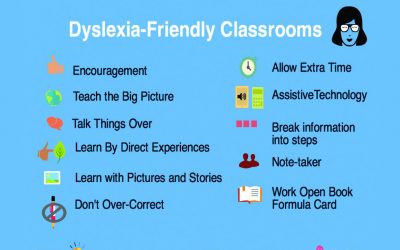Some of you may remember research in the past that showed that individuals with dyslexia have more difficulty screening out background noise (discussed in the news HERE). Students or adults with this difficulty can usually request quiet area for work or test-taking under the ADA or Americans for Disabilities Act. Now another research group has tested the effect of “white noise” on reading skills and memory recall in children with a reading disability. From the paper: “The study was conducted with a group of 30 children with RD and phonological decoding difficulties and two comparison groups: one consisting of skilled readers (n = 22) and another of children with mild orthographic reading problems and age adequate phonological decoding (n = 30). White noise […]
What Kind of Dysgraphia [Premium]
A recent clinical review of dysgraphia has defined dysgraphia in the following way: “At its broadest definition, dysgraphia is a disorder of writing ability at any stage, including problems with letter formation/legibility, letter spacing, spelling, fine motor coordination, rate of writing, grammar, and composition.” Developmental dysgraphia (i.e. dysgraphia not based on some known injury) is described in the same article as having a “difficulty in acquiring writing skills despite sufficient learning opportunity and cognitive potential.” When a teacher or other professional asks a parent about “what type of dysgraphia their student might have,” they may be referring to the so-called “5 Types of Dysgraphia”, that often include, “motor”, “dyslexic”, “spatial”, and so on – but these distinctions are rarely clear-cut in real life and […]
Answer Apps and the Benefits of Learning in Reverse [Premium]
Conventional lecture courses for subjects with problem sets can be inefficient. For dyslexic students if the information comes in too quickly, they can’t follow steps as a teacher works through problems in real time. A recurring scenario for many students (and not just the dyslexic ones) is that to truly understand, the students must work through the material themselves at home. The lucky ones have a parent, sibling, or someone else to be a tutor, while others may struggle looking at incomplete notes with only a hazy idea of what teachers did to arrive at their answers. Having teachers notes or having a flipped classroom (watch a video first, then see the problems worked by a teacher) can improve this situation, but inevitably there […]
The Double Whammy: Dyscalculia and Dysgraphia [Premium]
What happens when a student has both dyscalculia and dysgraphia? Be prepared for an educational path that has a timing of its own. Dysgraphia often accompanies dyslexia, but dyscalculia too. If you or your student has two or three out of these 3 “d’s” be prepared for a challenging course and a need for individualization for many years. The most typical presentation for dyscalculia relates to students who have trouble mastering the sequence of numbers and recall of basic math facts. When dysgraphia gets added to the mix, you can imagine how it may swamp working memory, causing students to lose track when they work through math problems. In a very real sense having both dyscalculia and dysgraphia also robs students of being able to […]
Schooling From Home, Can You Do It?
Like it or not, when Fall rolls around, many of us may need to school from home whether it's our first choice or not. What if your student is dyslexic? Can it possibly work? There are a lot of people who can't see schooling from home working for their student, but...
Typing for Students with Dyslexia and/or Dysgraphia
Typing is one of those tasks that every dyslexic person should master, but some students have difficulty fitting it into their already busy stressed-filled days. Some parents sign up their middle or early high school students for courses over the summer, but as almost...
Reversals and How to Help [Premium]
“The ability to recognize objects from various view-points has advantages in perceiving one’s environment, allowing one to identify a potential threat from many different views…(however) this trait of the object recognition system is disadvantageous for reading….” Blackburne et al., 2014 MIT When neuroscientists used neurophysiological techniques to study brain-based correlates of letter reversals, they were surprised to find how slowly children’s brains matured into the final adult pattern. Even when children were no longer writing letters backwards, their brains hadn’t matured to final “adult” pattern. Most researchers working in the area of reversals believe the letter reversal issue is related to how to recognize objects from different perspectives. We can recognize our friend if we’re standing right in front of them, to the side, at […]
PUTTING A NAME ON IT: Dyslexia, Dysgraphia, and Dyscalculia
The school year begins and then there's a lull. The first days of excitement and change are past and now teachers are trying to figure out their students and students are trying to figure out their teachers. Now is a good time for students to talk to their teachers...
Unleash Dyslexic Writing with Dr. Nicole Swedberg [Premium]
In step-by-step fashion, learn how to unleash the dyslexic writing talent of students through Dr. Nicole Swedberg’s idea of Mini-Writes. In her talk, Dr. Swedberg talks about short writing assignments can help students master small achievable goals. She describes how she can take a student through the writing process in 1-3 sessions. Some strategies include using wordless picture books, a word bank, and afterwards a routine involving spellcheck and finally use of text-to-speech for each sentence. Other topics include strategies for overcoming a report meltdown and strategies for note taking using assistive technology. Dr. Nicole Swedberg has generously donated this 20-minute webinar on Teaching Writing to LD Kids as a fundraiser to support the programs here at Dyslexic Advantage and we are very grateful.
Dyslexia and the NEW SAT [Premium]
The new SAT started March 2016. From the New York Times, “What’s true of the writing section is true of the new SAT in general: There’s much more to read. “The most fundamental change is that there are many, many more words,” said Aaron Golumbfskie, education director for PrepMatters. “If you don’t read well and happily, this test isn’t going to be your friend.” Even the math section will require more reading, with fewer questions based on equations and more word problems. Some prompts will present the same type of real-world situations that the Common Core emphasizes — “The recommended daily calcium intake for a 20-year-old is 1,000 milligrams (mg). One cup of milk contains 299 mg….” Mr. Golumbfskie describes the math section as “tighter […]
Spelling Difficulties as a Source of Dysgraphia
In an interesting study, researchers in France looked at the impact of spelling difficulty on the writing performance of students with dyslexia. From the study: "Dyslexia weakens spelling skills, even when the child presents no motor problems. By varying the degree of...
Could Dyslexia and Dysgraphia Affect IQ Scores? [Premium]
From our Community: Can Dyslexia and Dysgraphia Affect IQ Scores? My son got officially diagnosed with both dyslexia and dysgraphia this week. I suspected he would come back with the diagnosis. What surprised me a bit were his IQ scores. The scenario is a common one – one sibling is dyslexic while the other is not. The non-dyslexic student qualifies easily for a highly capable / gifted program while the dyslexic one does not…although that may be the one who is a “head turner” because of creative thinking, intuitive leaps, and general reasoning and questioning capacity. The short answer is YES. There are many individual factors that can affect the accuracy of a student’s testing. A student’s temperament (perfectionistic, introverted), oral fluency, persistence / resilience, verbal […]

![White Noise Improves Reading Skills and Memory in Reading Disabilities [Premium]](https://www.dyslexicadvantage.org/wp-content/uploads/2021/09/White-noise-2-400x250.jpg)
![What Kind of Dysgraphia [Premium]](https://www.dyslexicadvantage.org/wp-content/uploads/2021/09/What-kind-of-dysgraphia-2-400x250.jpg)
![Answer Apps and the Benefits of Learning in Reverse [Premium]](https://www.dyslexicadvantage.org/wp-content/uploads/2021/09/answer-apps-2-2-400x250.jpg)
![The Double Whammy: Dyscalculia and Dysgraphia [Premium]](https://www.dyslexicadvantage.org/wp-content/uploads/2021/06/Dysgraphia-and-Dyscalculia-400x250.png)


![Reversals and How to Help [Premium]](https://www.dyslexicadvantage.org/wp-content/uploads/2020/02/reversals-400x250.png)

![Unleash Dyslexic Writing with Dr. Nicole Swedberg [Premium]](https://www.dyslexicadvantage.org/wp-content/uploads/2019/12/nicole-swedberg.jpg)
![Dyslexia and the NEW SAT [Premium]](https://www.dyslexicadvantage.org/wp-content/uploads/2016/02/new-sat-dyslexia-pencil.jpg)

![Could Dyslexia and Dysgraphia Affect IQ Scores? [Premium]](https://www.dyslexicadvantage.org/wp-content/uploads/2016/06/dyslexia-dysgraphia-iq.jpg)













